What houses one of the most complex and abundant ecosystems on the planet? The human gut. Shockingly, we’re more bacteria than we are human. Our bodies contain trillions of microorganisms—outnumbering human cells 10 to 1. Whoa. Everything we eat, drink, touch, lather, and interact with can change those microorganisms. Behind the scenes, your lifestyle is either helping, hurting, or balancing your delicate yet powerful gut health. And while some lifestyle factors are beyond your control, you can control what’s on your plate. What you consume can make or break your digestion. Today, we’re sharing why gut health is important, the best foods for gut health, and top offenders to avoid. Time to dig in.
Featured image from our interview with Kate Waitzkin by Michelle Nash.

A Gut Health Refresher
We all know gut health—also known as the microbiome—is important. And the science proves it. An ever-growing amount of research points to the enormous role your gut plays in overall health and wellbeing. A balanced gut is necessary for proper digestion, but having enough good bacteria also keeps you healthy in other ways. For example, by producing vitamins, supporting the immune system, and fending off harmful bacteria.
With more than 70% of your immune system residing in your gut, it’s worth keeping your gut well-nourished. The good news is, most people can enhance their gut health naturally through diet and proper supplements. Making space in your fridge for the best foods for gut health is definitely worth the effort.
Check out this guide for more gut-friendly habits.
What is the microbiome?
Your microbiome is an ecosystem of bacteria. It not only helps ferment the food you eat, but these bacteria can support blood sugar balance, digestion, and optimal health. Your gut helps support and protect your body from the outside world. Everything from antibiotics to inflammatory foods and birth control pills can negatively affect your gut. If you’re experiencing issues like poor digestion, stomach discomfort, or acne, it might be a sign of a microbial imbalance in the gut.

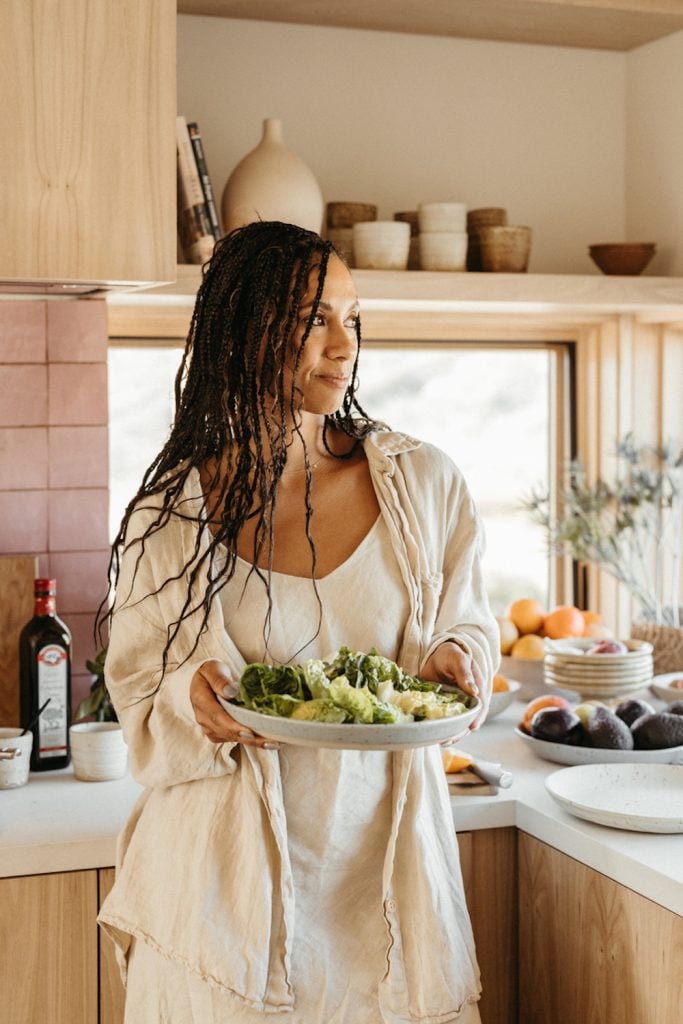
How to Achieve a Healthy Microbiome
Diversify, diversify, diversify. Eating balanced amounts of both probiotics and prebiotics can help ensure that you have the right balance of bacteria to keep your gut microbiota healthy. And many factors, including the foods you eat, can impact the type of bacteria found in your digestive tract. Generally speaking, a diverse microbiome equals a healthy microbiome. This is because the more species of bacteria you have, the more health benefits they can support. In fact, several studies show that elderly people possess a more diverse gut microbiota than younger adults. Between long-living Chinese, Japanese, and Italian people, all cohorts revealed diverse and balanced gut microbiota.
5 Steps to Improve Gut Health
Given that we all want to live long, vibrant lives, let’s dive into simple ways to improve your gut microbiome.
- Eat foods for gut health. Specifically, a diverse diet that’s rich in whole foods and antioxidants. A diet consisting of different food types can lead to a more diverse microbiome, which is beneficial for your health.
- Prioritize the Mediterranean diet. There are a variety of reasons to eat a Mediterranean diet, but mainly because of the emphasis on vegetables, fruits, beans, and legumes. These are high-fiber, gut-friendly foods that promote the growth of beneficial bacteria. Eating a range of fresh, whole foods, mainly from plant sources, is shown to improve gut health.
- Choose fermented foods. Fermented foods (or drinks!), like plain yogurt, kimchi, and tempeh can benefit the microbiome. They enhance its function and reduce the abundance of disease-causing bacteria in the intestines.
- Add in prebiotics. Many fruits, vegetables, and whole grains contain prebiotics, but they can also be found on their own. Resistant starch (like an unripe banana) can also be a prebiotic. If eating an unripe banana sounds unappetizing, you can also benefit from prebiotics by eating cooked and cooled potatoes and rice. The cooling turns some of the digestible starches into resistant starches.
- Increase your intake of probiotics. One of the most powerful ways? Take a probiotic supplement.
10 Foods for Gut Health
As mentioned, what you eat directly influences the makeup of bacteria in your gut. Which, in turn, impacts your health. A healthy gut helps keep chronic diseases like heart disease and cancer at bay, and can also reduce inflammation, keep your brain healthy, and help you maintain an optimal weight. It’s never too late to change your diet! Research shows that diversifying your plate can change your microbiome in as little as 24 hours.

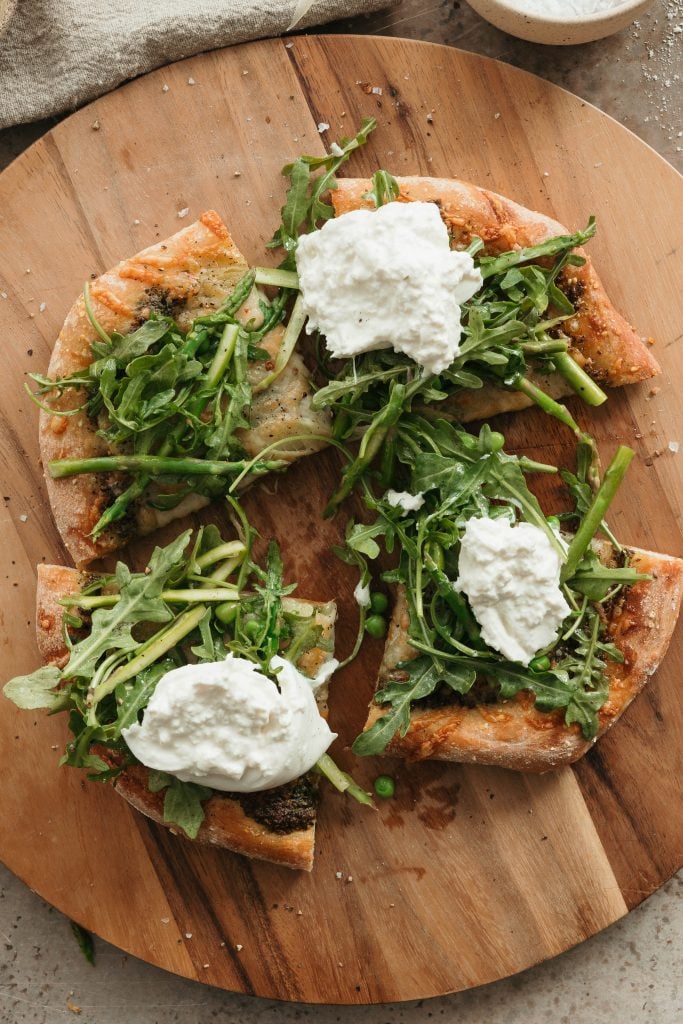
Asparagus
Eating asparagus is an excellent way to help meet your fiber needs and keep your digestive system healthy. As a good source of fiber, asparagus promotes regularity and digestive health and may help reduce your risk of certain conditions, like heart disease, high blood pressure, and diabetes.
Recipe: Spring Potato Pizza With Asparagus And Burrata

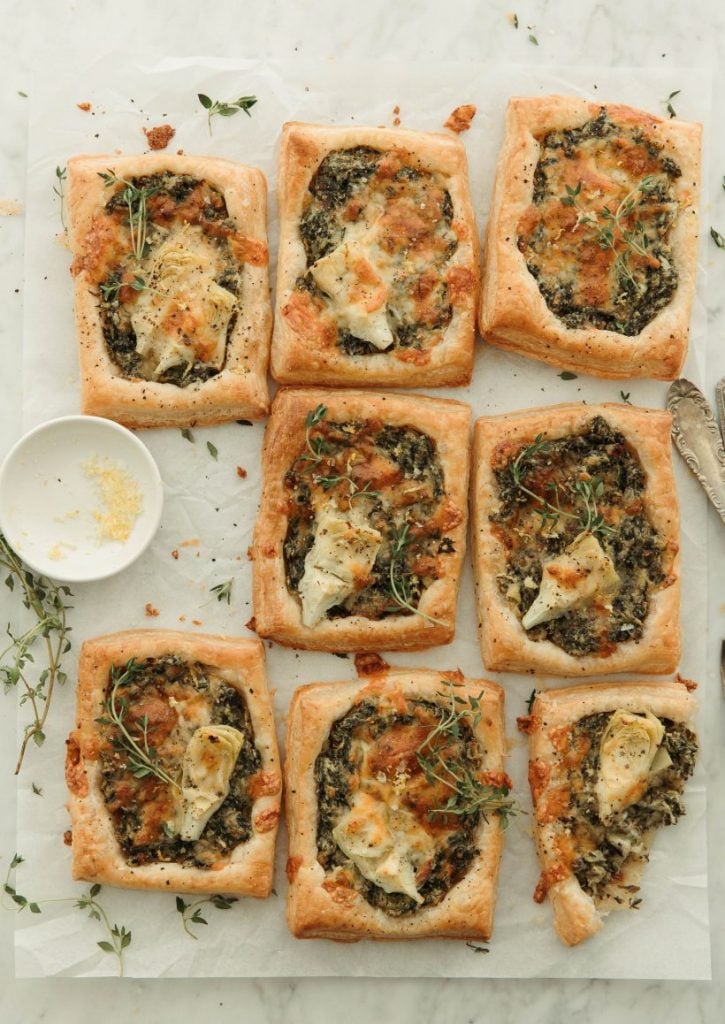
Artichokes
Artichokes are high in fiber, which can help keep your digestive system healthy. This delicious spring veggie feeds gut bacteria, reducing your risk of certain bowel cancers, alleviating constipation, and helping mitigate other digestive woes. Plus, artichokes contain inulin, a type of fiber which acts as a prebiotic.
Recipe: Spinach Artichoke Tarts

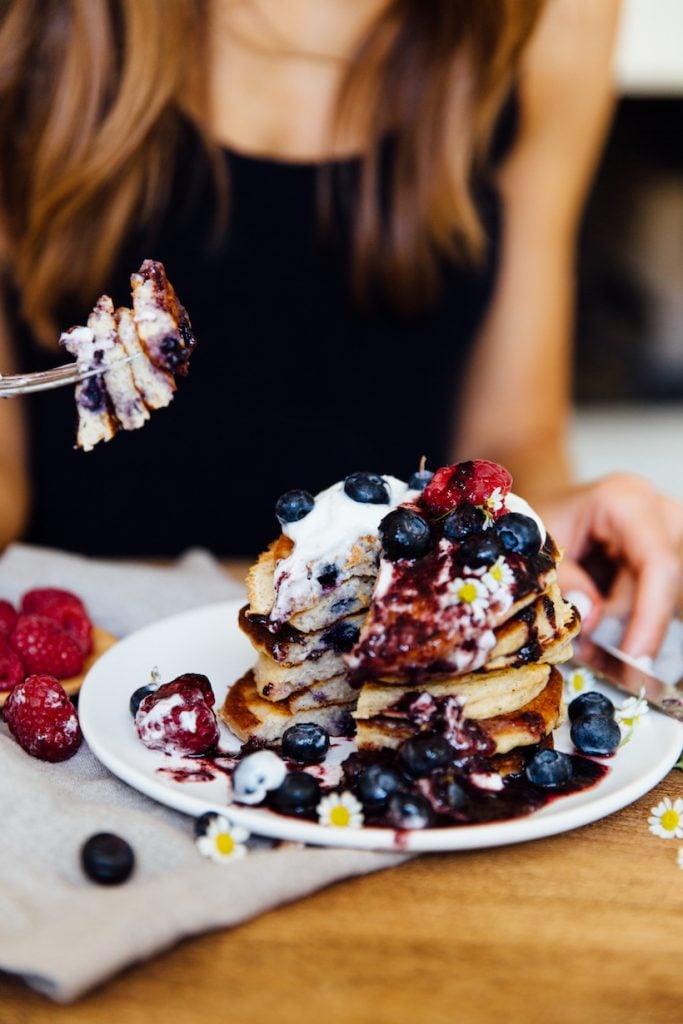
Chia Seeds
Chia seeds can act as a prebiotic, helping your stomach produce good bacteria. In turn, chia seeds support a properly functioning digestive system. A superfood, they also act as a cleansing agent for your digestive system. They turn into a sticky gel-like substance when soaked in water.
Recipe: Protein Pancakes With Blueberries and Chia Seeds

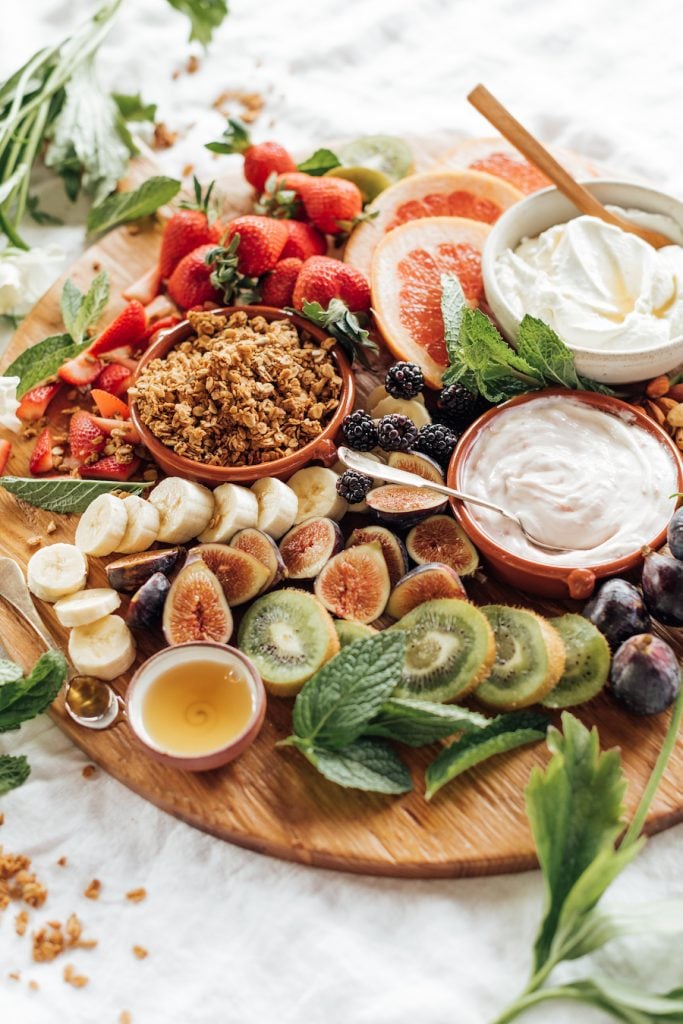
Coconut Yogurt
Due to its probiotic nature, coconut yogurt can aid in digestive health. All yogurt is a slightly fermented food filled with healthy bacteria. Traditionally, yogurt is made from animal milk. However, there are plenty of plant-based yogurts available, including coconut yogurt. We love Cocojune and COCOYO. In fact, COCOYO boasts a whopping 25 billion probiotics per 1/2 cup serving (with no added sugar).
Recipe: Yogurt & Granola Breakfast Grazing Board

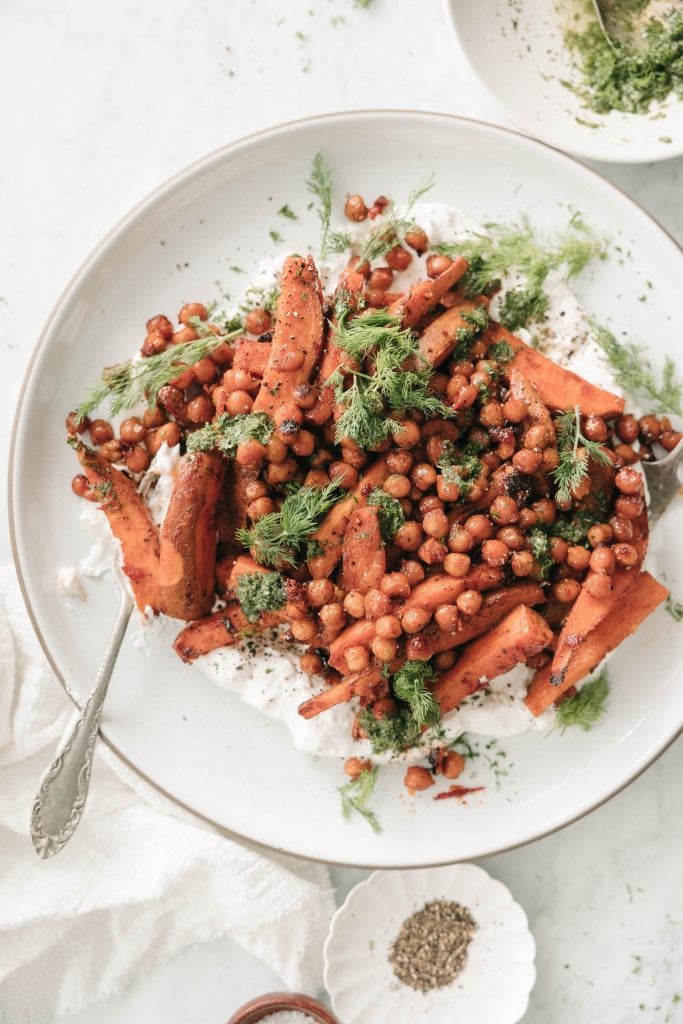
Beans
Cue: Beans, beans, the magical fruit… In all seriousness, beans are one of the most beneficial foods for gut health. A variety of beans, especially black beans, enhance gut health by improving intestinal barrier function and increasing the number of beneficial bacteria. This may help prevent gut-associated diseases.
Recipe: Sweet Potato and Chickpea Bowl with Feta Yogurt

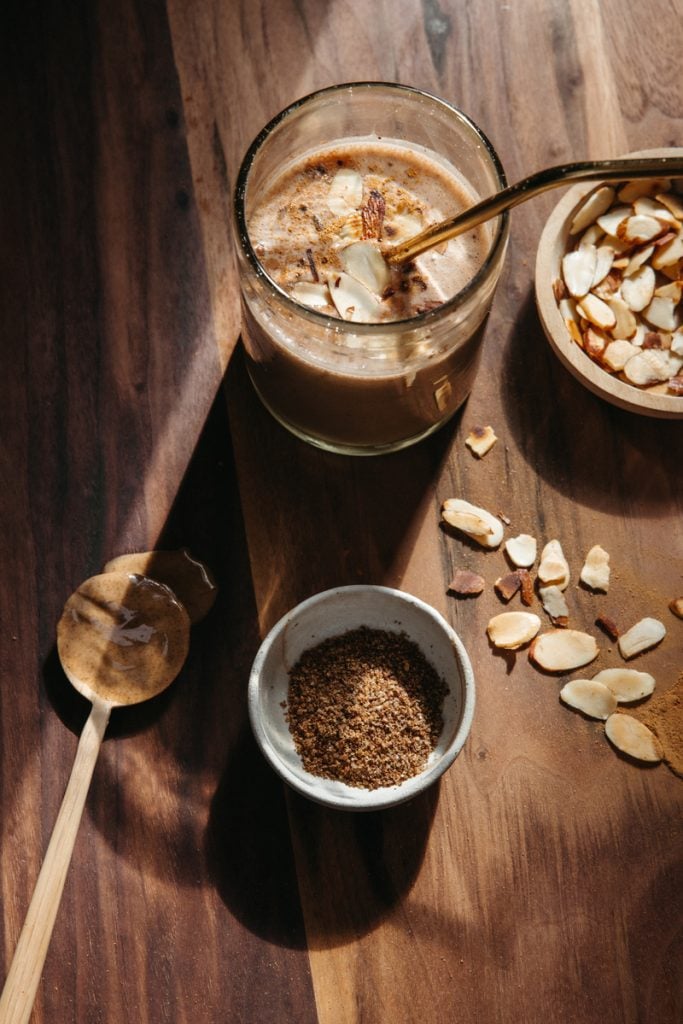
Flax Seeds
Flaxseed is commonly used to improve digestive health or relieve constipation. Flaxseed may also help lower total blood cholesterol and low-density lipoprotein (LDL, or “bad”) cholesterol levels, which may help reduce the risk of heart disease. Be sure to grind your seeds or buy ground flaxseed—and keep them stored in the fridge or freezer. You can add ground flax to smoothies, oatmeal, and yogurt bowls or use as an egg replacement in vegan baked goods.
Recipe: Chocolate Banana Almond Butter Smoothie

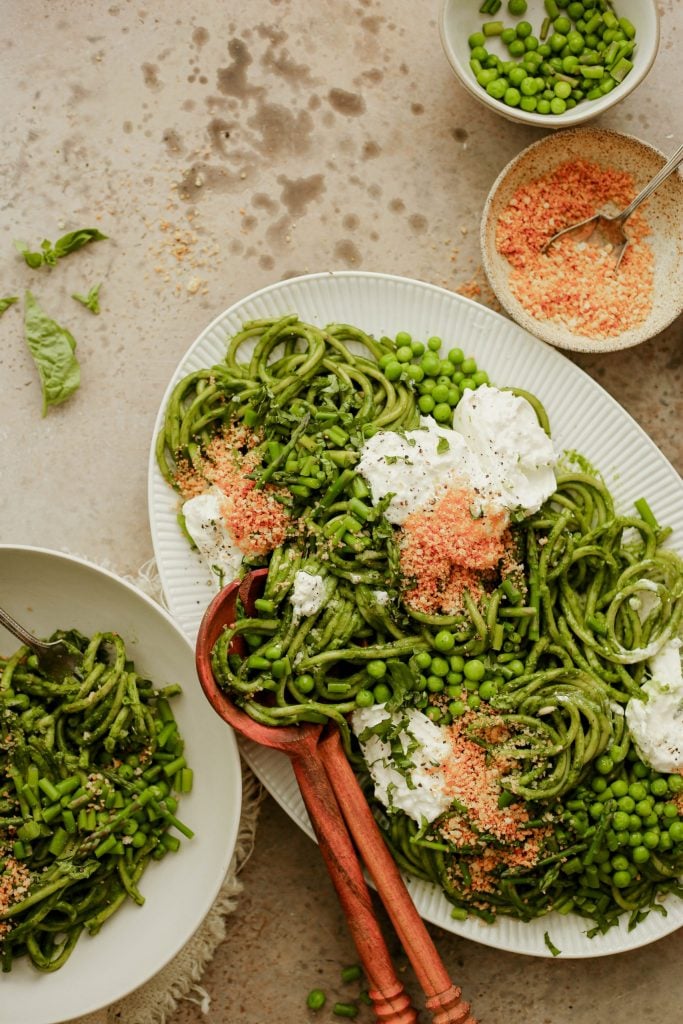
Leafy Greens
No surprise that leafy greens are included in this list of foods for gut health. Leafy greens, such as spinach or kale, are excellent sources of fiber, as well as nutrients like folate, vitamin C, vitamin K, and vitamin A. Research shows that leafy greens also contain a specific type of sugar that helps fuel the growth of healthy gut bacteria.
Recipe: Green Sauce Pasta

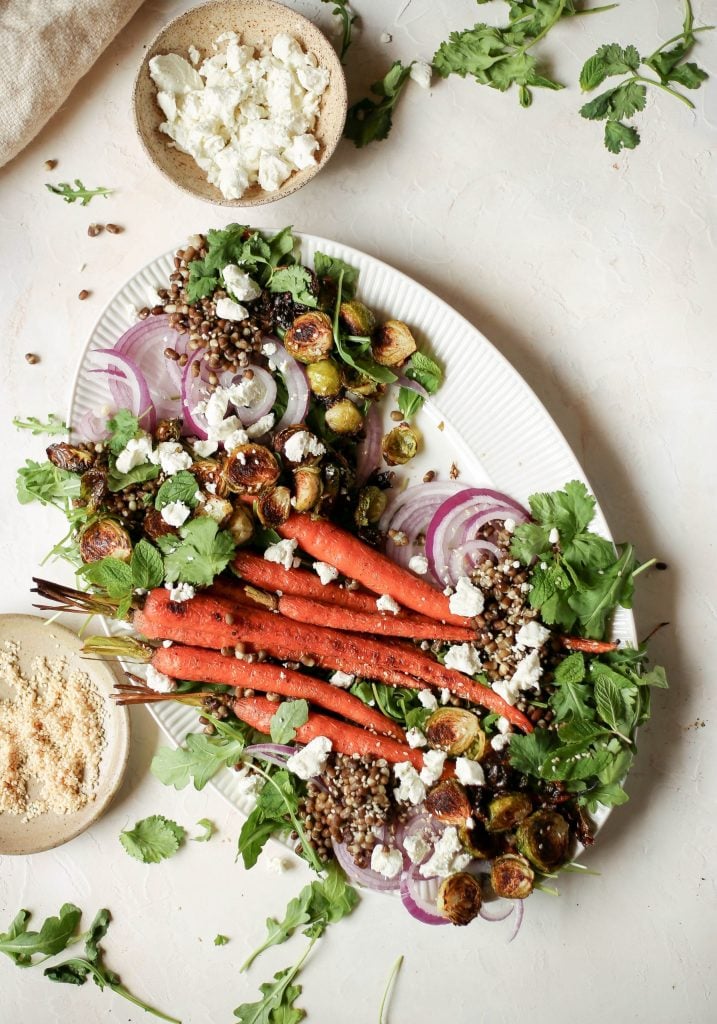
Lentils
Like beans, lentils can help improve gut health. Because lentils are a source of prebiotic fiber, they can help improve digestion. They can also help manage blood sugar levels and have been shown to make your heart healthier, lowering cholesterol and blood pressure.
Recipe: Black Lentil Salad with Roasted Vegetables & Goat Cheese

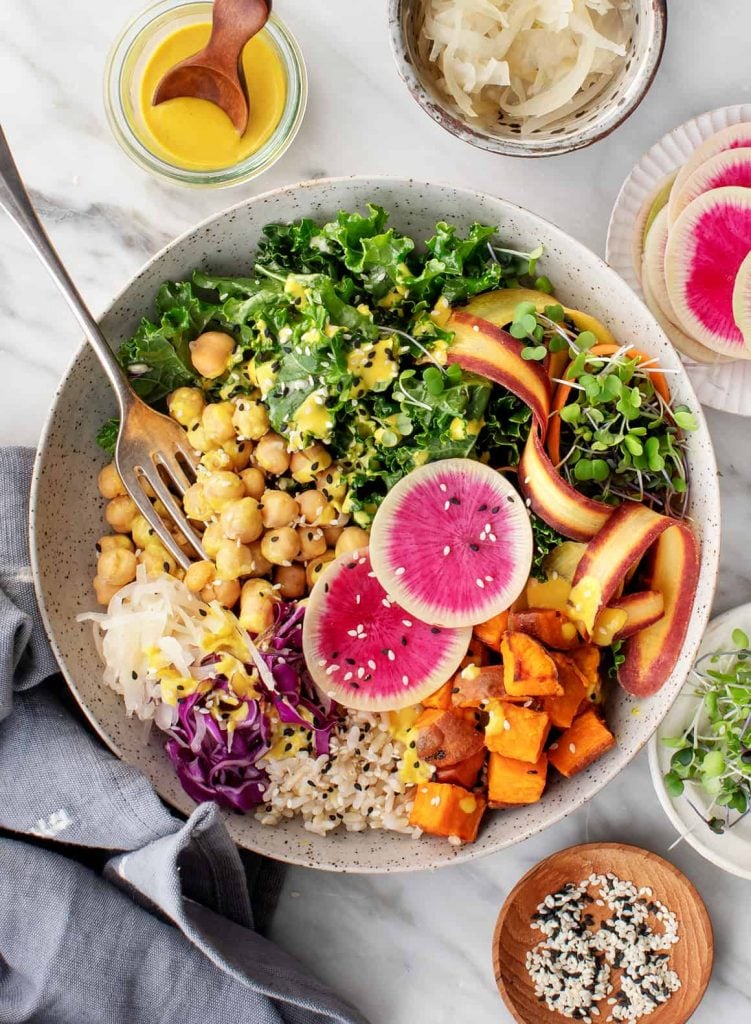
Sauerkraut
All fermented foods are wonderful for the gut! Sauerkraut, or fermented cabbage, is loaded with vitamins C and K, iron, and fiber, and naturally contains healthy gut bacteria. The nutritional value of certain ingredients, like cabbage, can be enriched by fermentation and it makes the food easier for us to digest. Surprise your guests and offer sauerkraut at your next brunch!
Recipe: Best Buddha Bowl from Love & Lemons

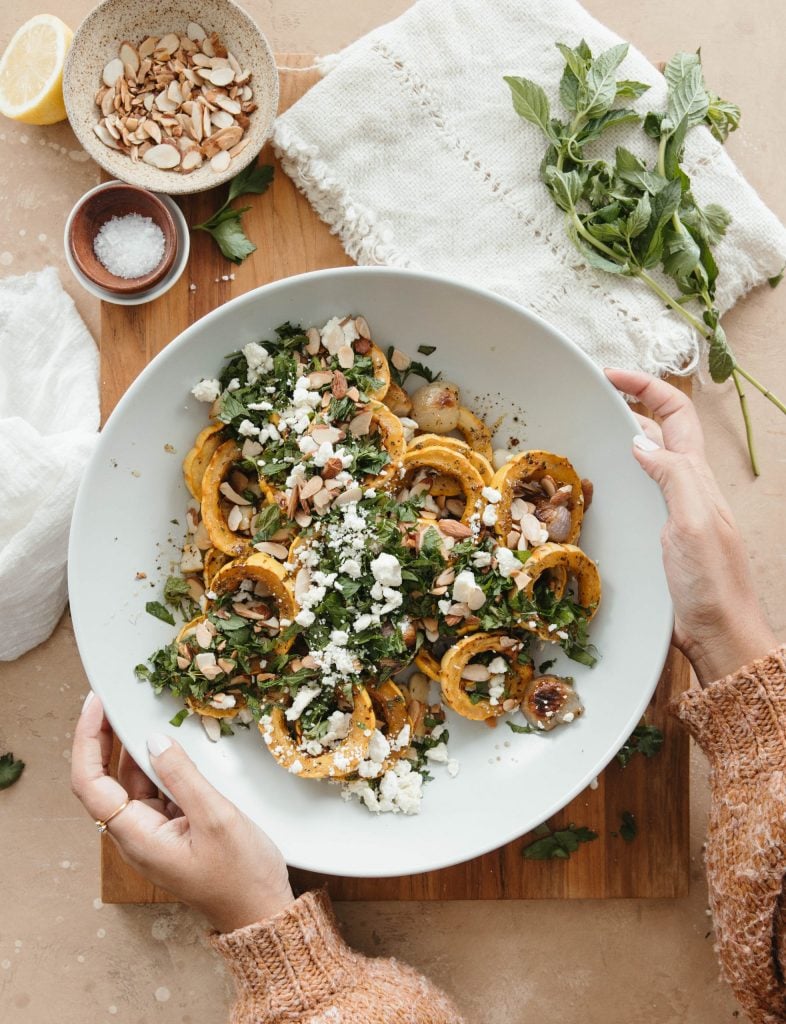
Squash
Foods rich in fermentable fibers, like sweet potato, cauliflower, butternut squash, and other squash varieties are great for stimulating the colon’s good bacteria. These ingredients also stabilize blood sugar levels, increasing low acid stomach levels and reduce inflammation in the gut.
Recipe: Roasted Delicata Squash
The Power of Resistance Starch
With each meal, consider how you can incorporate the aforementioned ingredients! Ultimately, you want to feed the good bacteria in your gut. Your good gut bacteria eat resistant starches (also known as prebiotics), which can be found in vegetables, legumes, and seeds. Other sources of prebiotics include acacia fiber, psyllium husk, and inulin. These come in the form of thin powders. You can easily add to your smoothie, coffee, or hot drink of choice—they feed your gut prebiotic fiber to create a very healthy digestive tract.
Add Fermented Foods
Beyond resistance starch, consider fermented foods. They’re a wonderful (and delicious!) way to feed your good bacteria. Foods like sauerkraut, kimchi, tempeh, and coconut yogurt help populate your microbiome with diverse probiotics and essential nutrients.
The Worst Foods for Gut Health
Rather than classify foods as good or bad, it’s important to emphasize the importance of bio-individuality. You are unique—as is your gut bacteria. That’s a beautiful thing! Knowing how different foods might affect your gut will help you make informed decisions. Generally speaking, refined grains, refined sugars, industrial seed oils, conventional dairy, and alcohol are gut-offenders. In essence, these ingredients can have a massive impact on overfeeding yeast and candida in the body. In turn—you guessed it—affecting gut health.





